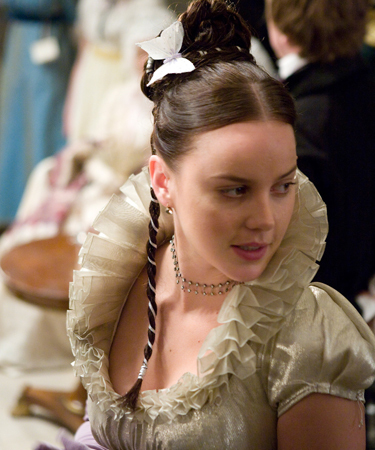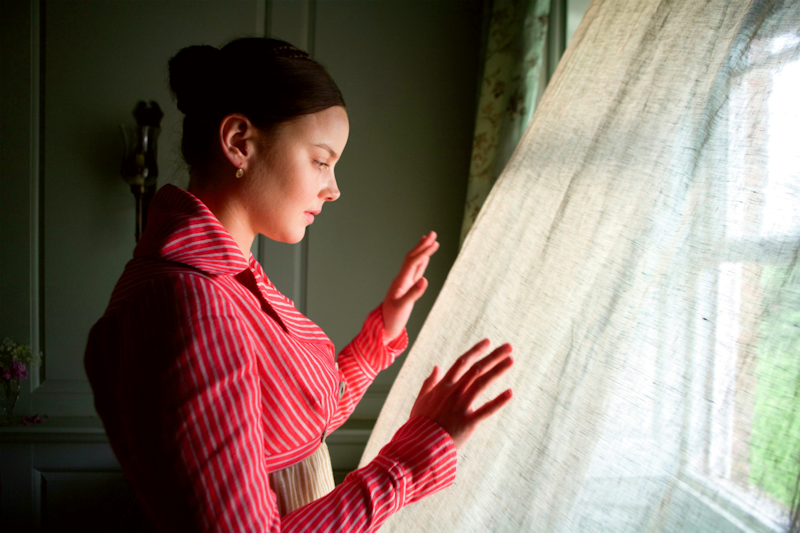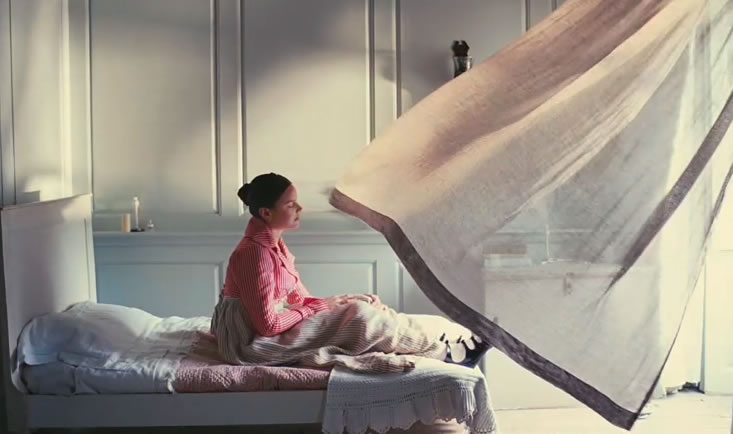Among the fascinating tidbits in David Grann’s The Lost City of Z. is a mention of a “Gumption-Reviver machine” used by Francis Galton — Darwin’s cousin and an adventurer, statistician, and inventor (later in life he would expand on and warp Darwin’s theories to create eugenics) — while he was an undergraduate at Cambridge.
I’ve been putting in a lot of writing time at my desk lately and the idea of a Gumption-Reviver is infinitely appealing. A couple sources credit Galton with the machine’s invention, but in the same letter excerpted below he mentions that a tutor recommended it to him so it may have already been in use at the college. The basic idea: A portable funnel suspended overhead drips a steady stream of water on your head to keep you awake. As Galton writes, “We generally begin to use this machine about 10 at night and continue it till 1 or 2; it is very useful.”
Should you want more specific instructions to create your own, I direct you to Galton’s letter to his father on the subject, found in Karl Pearson’s Life, Letters and Labours of Francis Galton. All you’ll need is a funnel with graduated stopcock, a supporting apparatus, a napkin and a servant to keep the funnel filled with water!
My dear Father,
I should have sent a letter to you yesterday if it had not been that the one that I had written was spoilt by an accident in my Gumption-Reviver machine which covered it with water. This machine as it has perhaps come into use since your time I describe to you.
[Sketch of the Gumption-Reviver machine: a student sits reading at a table, elbows on table and hands support head, lamp in front to right; funnel dripping water which runs off a cloth bound round head to left. Additional sketches of gallows to carry funnel and of method of arranging cloth.]
A large funnel is supported on a double stand about 6 ft. high, it has a graduated stopcock at the bottom by which the size of the aperture can be regulated. This as you read is placed above your head and filled with water. Round the head a napkin is tied, dependent on one side where the bow and end is so [arranged] that the water may drop off. Now it is calculated that as the number of hours of study increases in an arithmetic ratio, so will the weariness consequent on it increase in a geometrical ratio, and the stream of water must in that ratio be increased…
Galton explains that your “gyp” (Cambridge slang for servant) should refill the funnel every quarter-hour. You will not wish to spread a sheet or towel across your clothing as their wetness is desirable; as Galton says, “damp shirts do not invite repose.” However, the mention of the ruined letter makes me think that you may want a protective guard for your notebook or laptop.

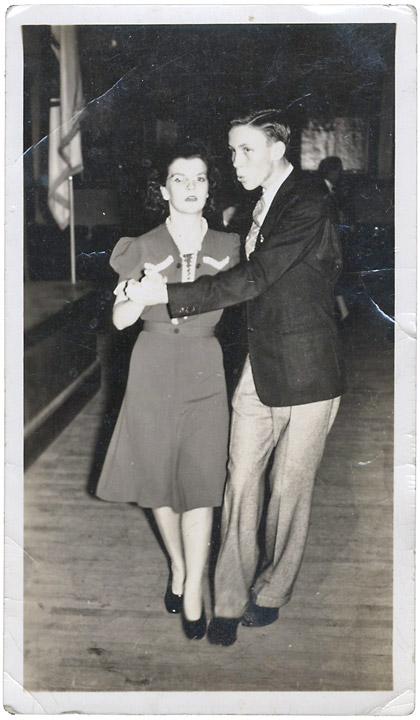 Sorry I’ve been absent here so long. My dad, who was in fragile health for a couple years, went through a sharp decline in early November. He died on Dec. 2. He was 88, lived a long full life, and died in his bed with my mom holding his hand. We have a lot to be grateful for, I know, but I miss him terribly each day. I had the task of writing his obituary and you can read it
Sorry I’ve been absent here so long. My dad, who was in fragile health for a couple years, went through a sharp decline in early November. He died on Dec. 2. He was 88, lived a long full life, and died in his bed with my mom holding his hand. We have a lot to be grateful for, I know, but I miss him terribly each day. I had the task of writing his obituary and you can read it 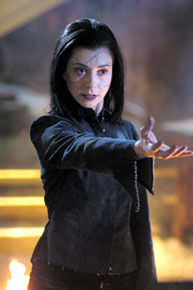 but this weekend I counted and I had some twenty books in different stages of being read around the house, ones I felt I couldn’t bear to return to the library or put back on their proper shelves because “I’m reading it.” I’ve fallen into the habit of bringing a stack of three to four into bed with me at night — picking them up from around the house as I turn off lights like a grocery shopper ambling through the produce section picking whatever pretty fruit strikes the fancy. On the one hand, thus has it always been — people who like books will have books in their bed, will have far more books on their reading list than they will ever finish, etc. On the other, I think when you casually read a couple hundred little news items, interesting posts and articles online in day, it get frightfully easy to carry a glib sense of engagement away with you from the computer — to want to click along to the next book whenever you’re bored. And on some deeper level, I wonder if the Internet with its ready and immediate access to anything I want to know, has given me a false sense that I’m capable of knowing it, i.e., that I can suck in all that knowledge like Evil Willow draining books at the magic shop. Even as my reading habits have gotten sloppier, have I come to think I’m someone who’s capable of reading three or four books before bed? That I’ll wake up and suddenly be
but this weekend I counted and I had some twenty books in different stages of being read around the house, ones I felt I couldn’t bear to return to the library or put back on their proper shelves because “I’m reading it.” I’ve fallen into the habit of bringing a stack of three to four into bed with me at night — picking them up from around the house as I turn off lights like a grocery shopper ambling through the produce section picking whatever pretty fruit strikes the fancy. On the one hand, thus has it always been — people who like books will have books in their bed, will have far more books on their reading list than they will ever finish, etc. On the other, I think when you casually read a couple hundred little news items, interesting posts and articles online in day, it get frightfully easy to carry a glib sense of engagement away with you from the computer — to want to click along to the next book whenever you’re bored. And on some deeper level, I wonder if the Internet with its ready and immediate access to anything I want to know, has given me a false sense that I’m capable of knowing it, i.e., that I can suck in all that knowledge like Evil Willow draining books at the magic shop. Even as my reading habits have gotten sloppier, have I come to think I’m someone who’s capable of reading three or four books before bed? That I’ll wake up and suddenly be  Again, none of these are new habits of mind, but they feel exaggerated by my Internet use. So it’s with sorrow but determination that I announce I’m signing off of it forever. Ha ha, just kidding! But what I am doing is orchestrating a new reading regime, a sort of course correction, to make myself a better reader offline. I’ve used this system in the past when I felt like my Gemini brain had gotten disorderly, and it’s worked well. It’s to read one author and one author only for a month. No leaping around within the oeuvre, either. It’s one book at a time. Front to back. After a lot of thought and vacillation, I’ve decided November is Herman Melville month. Nothing but Herman until December.* So good-bye, Orlando, Lolly Willowes, Daniel Deronda, and Oryx and Crake; goodbye, Werner Herzog in Brazil and fascinating academic
Again, none of these are new habits of mind, but they feel exaggerated by my Internet use. So it’s with sorrow but determination that I announce I’m signing off of it forever. Ha ha, just kidding! But what I am doing is orchestrating a new reading regime, a sort of course correction, to make myself a better reader offline. I’ve used this system in the past when I felt like my Gemini brain had gotten disorderly, and it’s worked well. It’s to read one author and one author only for a month. No leaping around within the oeuvre, either. It’s one book at a time. Front to back. After a lot of thought and vacillation, I’ve decided November is Herman Melville month. Nothing but Herman until December.* So good-bye, Orlando, Lolly Willowes, Daniel Deronda, and Oryx and Crake; goodbye, Werner Herzog in Brazil and fascinating academic 